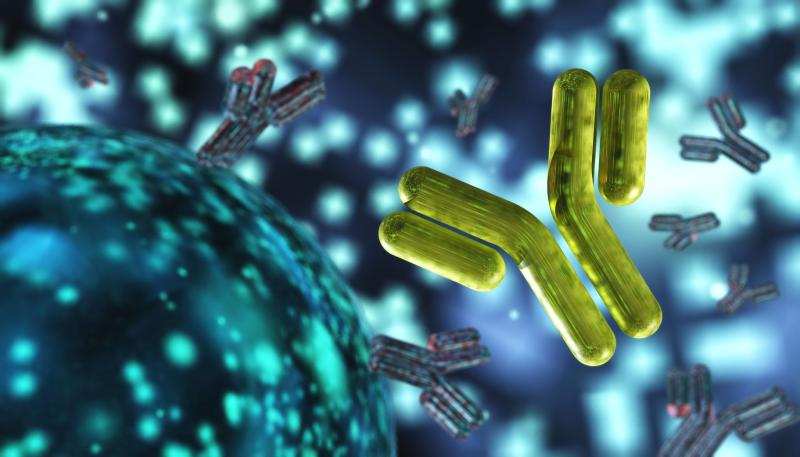 Dengue antibodies have been found to trigger life-threatening infections among humans.
Dengue antibodies have been found to trigger life-threatening infections among humans.Majority of patients with confirmed SARS-CoV-2 infections appear to be capable of mounting an immunoglobulin (Ig) G immune response to the disease, according to a new pre-print.
“In contrast to some of the prior literature on formation of antibodies, over 99 percent of the patients who self-reported or had laboratory documented SARS-CoV-2 infection developed IgG antibodies using our assay,” researchers said. “Additionally, our findings suggest that IgG antibodies develop over a period of 7 to 50 days from symptom onset and 5 to 49 from symptom resolution.”
Using an FDA-approved, two-step enzymatic assay, the research team measured SARS-CoV-2 antibody titres in 1,343 coronavirus disease 2019 (COVID-19) patients (mean age, 40 years; 53 percent male). Almost all participants had mild disease. [medRxiv 2020;doi:10.1101/2020.04.30.20085613]
SARS-CoV-2 was confirmed through polymerase chain reaction (PCR) tests in 624 participants, either through self-reports or as indicated in electronic medical records (EMR). Upon first serology testing, 82 percent (n=511) were strongly positive for antibodies against the virus, with titres ≥1:320. Seven percent were weakly positive, and 11 percent tested negative.
After at least 10 days, 64 patients who were negative or weakly positive were retested. Eighty-nine percent (n=57) saw an increase in antibody titres between the two tests, and four remained weakly positive. Three patients, none of whom had EMR-documented COVID-19, tested negative again.
“Although we do not yet know what, if any, immunity is conferred by IgG or the duration of the IgG response, at this time it seems likely that IgG to SARS-CoV-2 may confer some level of immunity based on what is known about viral immunity to other pathogens,” the researchers said.
“In order to study the duration of IgG antibody response to SARS-CoV-2, we plan to follow our cohort for the next 6 months in order to track titre levels,” they added.
The research team also tracked the persistence of viral RNA in the nasopharynx. They found that even if all participants noted complete resolution of symptoms at least 3 days before testing, 19 percent (n=249) still tested positive for SARS-CoV-2 RNA. The longest documented time of a persistent positive PCR test was 28 days after symptom resolution.
“Our survey provides a large cross-sectional representation of SARS-CoV2 RNA and antibodies found in participants recruited after recovery from SARS-CoV-2 during the early weeks of the outbreak in New York City,” the researchers said.
“Understanding the duration of potential infectiousness and the time to IgG antibody response are critical to the containment of SARS-CoV-2 spread, and the plans for widespread antibody testing over the coming months,” they added.
This study has not yet been peer-reviewed.